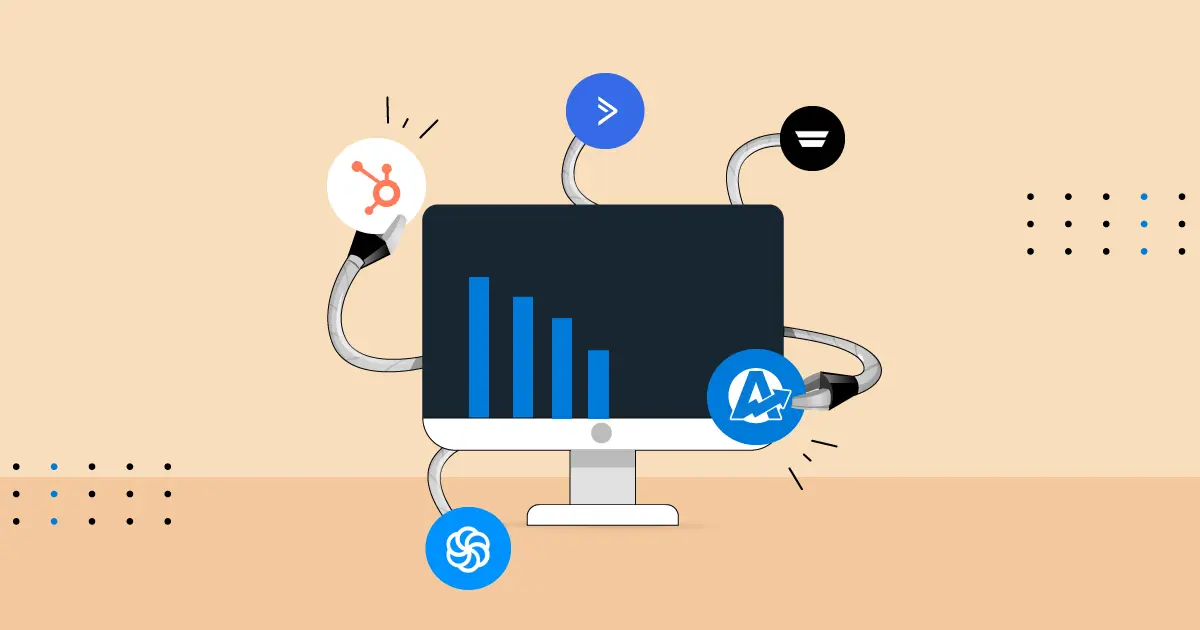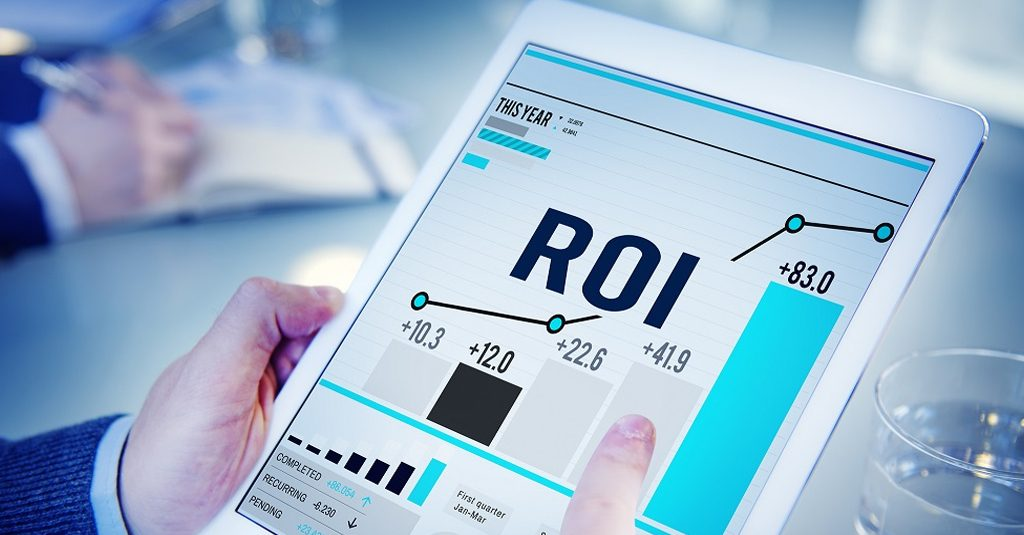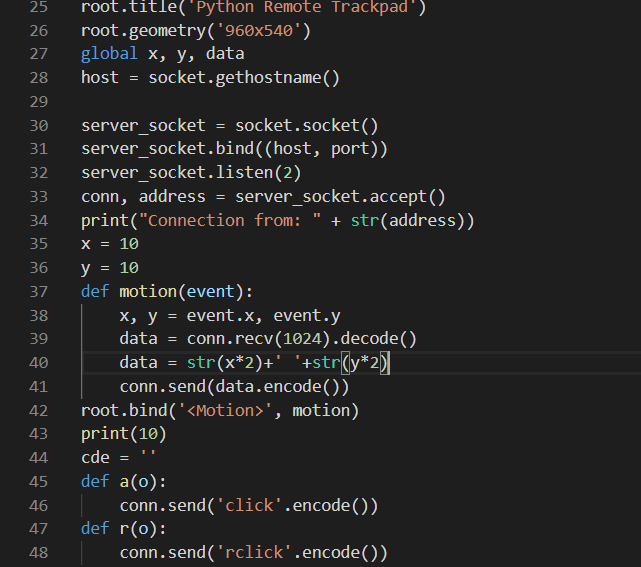In the fast-paced world of digital marketing, the ability to harness the power of automation has become a critical component for agencies seeking to stay ahead of the curve. Whether focusing on SEO, content marketing, or social media campaigns, agencies grapple with numerous complexities in their daily operations.
By harnessing automation, marketing agencies can not only conquer the complexities of their trade, but pave the way for enhanced productivity, data accuracy, and client satisfaction. In this article, we’ll explore the ins and outs of implementing automation in your marketing agency – helping you unlock its full potential in order to boost your agency’s growth and success.
Understanding Automation in Marketing
Automation in marketing refers to the use of technology and software to perform repetitive, time-consuming processes which would otherwise be handled manually. In the context of marketing agencies, automation plays a pivotal role in optimising operations.
By automating routine tasks, such as sending out email campaigns, scheduling social media posts, and tracking customer interactions, agencies can significantly reduce manual efforts. This not only frees up valuable time but also minimises the risk of human error – ensuring consistent and accurate execution of marketing strategies. Moreover, marketing automation enables agencies to create personalised and targeted experiences for clients and their audiences, resulting in higher engagement and conversion rates.
However, there are common misconceptions about automation, such as it being a one-size-fits-all solution, or that it entirely replaces human creativity. It’s essential to dispel these myths and recognise that automation complements human expertise, enhancing productivity and allowing marketing professionals to focus on strategy and creativity.
Benefits of Agency Automation
Automation can revolutionise how marketing agencies operate, offering a plethora of advantages that ultimately boost both client satisfaction and business growth. Here’s a closer look at the numerous benefits it brings to the table.
#1 Streamlined Processes and Improved Efficiency
Through automation, marketing agencies can streamline time-consuming tasks, leading to heightened efficiency and a significant reduction in manual workloads.
This enables agencies to execute campaigns seamlessly, meeting deadlines with precision and exceeding client expectations more consistently. In an industry where swift execution and accuracy are paramount, automation ensures that agencies can meet and even surpass client demands.
#2 Enhanced Client Relationships
Automation empowers agencies to offer clients personalised, data-driven insights and faster responses to their evolving needs. This not only fosters stronger and more enduring client relationships, but also significantly heightens overall client satisfaction.
#3 Cost Reduction and Improved ROI
By automating routine tasks and optimising ad spend, agencies can systematically reduce operational costs. The enhanced efficiency often translates into a higher ROI for both the agency and its clients, making every marketing dollar invested count.
Reduced overheads allow agencies to allocate resources more strategically, ensuring that marketing campaigns generate a greater return on investment for clients and agencies alike.
#4 Scalability and Consistency
Automation ensures that marketing strategies remain consistent and adaptable as agencies expand. Whether handling one client or a dozen, automation can flexibly scale to maintain quality and effectiveness.
This consistency across growth phases enhances client confidence and trust in the agency’s capabilities. Clients can be assured that, regardless of the scale of their project, the same level of expertise and service quality will be consistently delivered.
#5 Data-Driven Decision-Making
Automation tools deliver invaluable data insights, allowing agencies to make informed decisions. This data-driven approach leads to the development of more effective marketing strategies and a deeper understanding of target audiences.
As a result, campaigns are not only finely tuned for success but also exhibit adaptability in response to shifting market dynamics. With data at the core of marketing decisions, agencies can evolve their strategies with precision, responding to market trends and client needs proactively.
Assessing Your Marketing Agency’s Needs
Before diving headfirst into the world of marketing automation, it’s essential to conduct a thorough self-assessment. This step is pivotal in ensuring that automation aligns with your agency’s unique requirements, and the ensuing results meet your goals effectively.
- Identifying Pain Points and Bottlenecks: Start by pinpointing the specific pain points and bottlenecks in your agency’s current operations. Are there tasks that consume excessive time and resources? Are there areas where errors frequently occur? By diagnosing these issues, you can tailor your automation efforts to alleviate these challenges directly.
- Setting Clear Goals and Objectives for Automation: Clearly defined goals and objectives are the compass for your automation journey. What do you aim to achieve with automation? Is it optimising efficiency, enhancing client satisfaction, or increasing ROI? Defining these objectives will guide your automation strategy and help measure its success.
- Understanding Your Target Audience’s Preferences: Marketing is all about connecting with your audience effectively. Understanding your target audience’s preferences, behaviours, and communication channels is vital. Automation can help deliver personalised and timely messages, but only if you have a deep comprehension of what your audience seeks.
Selecting the Right Automation Tools
When it comes to implementing automation in your marketing agency, choosing the right tools is paramount. The market offers a variety of options, each with its own unique features and advantages. Below, we explore four main types of marketing automation services to help you make an informed decision.
#1. Automation Scripts
Automation scripts are pre-written pieces of code that can be integrated into your existing systems. These scripts automate specific tasks or processes, such as data collection or report generation.
While they are cost-effective and provide some level of customization, they may not address all your agency’s automation needs. Automation scripts are best suited for agencies with a development team capable of working with code.
#2. Off-the-Shelf Automation Software
Off-the-shelf automation software, as the name suggests, is ready-made software solutions that offer a range of automation features. They are user-friendly and suitable for marketing agencies looking for quick, out-of-the-box solutions.
However, they may lack the level of customisation required to address unique agency needs. While accessible, they might not be as adaptable to your agency’s specific requirements.
#3. Bespoke Automation Software
Bespoke automation software is tailor-made to fit your agency’s precise requirements. Unlike off-the-shelf solutions, bespoke software can be designed to automate processes from the ground up, ensuring that it aligns perfectly with your workflows and objectives.
While it may involve a more significant upfront investment, the long-term benefits in terms of efficiency and customisation can be substantial. It’s an ideal choice for agencies seeking a tailored and comprehensive automation solution.
#4. Marketing Automation as a Service
Marketing automation as a service is a cloud-based solution that provides a range of automation tools, often on a subscription basis. It offers flexibility and scalability, making it a suitable choice for agencies of all sizes.
This option may not provide the same level of customisation as bespoke software but can streamline various marketing tasks and reduce manual efforts. It’s a good starting point for agencies looking to dip their toes into automation without a significant upfront investment.
Ultimately, the choice of automation tools will depend on your agency’s specific needs, budget, and long-term goals. It’s essential to evaluate each option in light of your unique circumstances and consider factors such as scalability, customisation, and ease of use when making your decision.
Creating an Automation Strategy
Developing a well-crafted automation strategy is essential to the success of your marketing agency’s automation efforts. Here’s a concise guide on how to create a robust strategy.
- Develop a Roadmap for Implementation: Begin by outlining a clear roadmap that defines the scope and timeline for your automation initiatives. This roadmap should cover the gradual integration of automation tools into your agency’s processes. Start with high-impact, manageable tasks and gradually expand automation’s reach. Ensure that your team is aligned with the roadmap and is aware of the strategic objectives.
- Set Up Key Performance Indicators (KPIs): To measure the effectiveness of your automation efforts, establish key performance indicators (KPIs). KPIs should be specific, measurable, and aligned with your agency’s goals. They might include metrics like increased efficiency, reduced manual workload, improved client satisfaction, or enhanced ROI. Regularly monitor and analyse these KPIs to gauge the impact of automation and make adjustments as needed.
- Build a Budget for Automation Initiatives: Budgeting is crucial to ensure your automation efforts stay on track. Consider both upfront and ongoing costs, including software licences, staff training, and potential consulting fees. Allocate resources judiciously, weighing the long-term benefits of automation against the initial investment. Be prepared to adapt your budget as your agency’s automation initiatives evolve.
Navigating Marketing Automation Trends
In this section, we’ll delve into five emerging trends that are reshaping marketing automation, generating a surge in demand for related services.
#1 The Rise of Custom Automation Scripts
Custom automation scripts are on the ascendancy as savvy marketers seek tailored solutions to cater to their unique business needs. These scripts empower businesses to automate highly specific tasks and processes that are beyond the reach of off-the-shelf software.
From personalised email campaigns to niche data analysis, custom scripts offer unparalleled flexibility and precision. Consequently, marketing agencies offering script development services find themselves in high demand.
#2 The Convergence of Marketing Automation and CRMs
The merging of Customer Relationship Management (CRM) platforms with marketing automation tools is gaining momentum. This integration enables seamless data sharing, allowing businesses to deliver more personalised marketing experiences.
The demand for services specialising in CRM and marketing automation integration is surging as companies recognise the significance of a unified approach to customer data management and automation in creating cohesive, data-driven marketing campaigns.
#3 Streamlining Paid Ad Campaigns Through Automation
Managing paid advertising campaigns across diverse platforms is a time-consuming task. Hence, the need for automated tools that streamline ad creation, optimisation, and reporting is greater than ever.
Businesses are actively seeking services capable of implementing and managing automated ad campaign solutions, optimising ROI, and liberating marketing teams to focus on strategy and creativity.
#4 Advancing Automated PPC Bidding Strategies
Pay-Per-Click (PPC) advertising remains a digital marketing cornerstone, with automation reshaping how businesses handle PPC campaigns. Automated bidding strategies, driven by machine learning algorithms, are becoming increasingly sophisticated.
These strategies optimise ad spend, make real-time bid adjustments, and target the most valuable keywords and audiences. Therefore, services specialising in setting up and managing automated PPC bidding are indispensable for companies aiming to maintain competitiveness and efficiency in digital advertising.
#5 The Emergence of Ad Copy Automation
Creating compelling ad copy remains at the heart of successful digital advertising, driving the surge in popularity of AI-driven ad copy generation tools. These tools analyse audience data, campaign objectives, and industry trends to enhance ad relevance and engagement – while saving time on manual content creation.
When is the Right Time to Implement Marketing Automation?
Choosing the optimal moment for introducing marketing automation into your agency’s operations is a strategic decision. Several critical cues can help you pinpoint the right time for this transformation.
One telltale sign is a mounting workload, particularly when it involves repetitive, time-consuming tasks such as manual email outreach or data entry. In such cases, automation serves as the antidote, freeing up your team’s bandwidth for more strategic, creative endeavours.
Another signal is grappling with an inundation of data from various sources, which can pose significant challenges for data analysis and actionable insights. Here, automation becomes a valuable asset, streamlining data processing and enabling data-driven decision-making.
Marketing automation can provide the edge you need by optimising processes, ensuring prompt responses, and enhancing campaign performance. The right moment to implement marketing automation coincides with your agency’s unique needs and the evolving demands of your clients. It’s not merely a trend to follow, but a strategic adaptation to cater to these changing needs effectively.
Acuto Can Build Your First Automation Script
At Acuto, we are firm believers in unleashing the full potential of agency automation. Our expertise lies in crafting custom automation scripts for businesses, freeing up valuable time otherwise spent on mundane tasks and allowing you to focus on what truly matters.
Our automation solutions span across various web apps, including Google Ads, Google Sheets, Meta for Developers, Authoritas, and more. Through close collaboration with your team, we develop tailored automation solutions that align precisely with your business needs.
Partnering with Acuto empowers you to launch promotion campaigns effortlessly using Google Ads scripts. Our team comprises experienced developers and data engineers well-versed in digital marketing and paid media. This unique skill set enables us to deliver robust automation scripts that handle the job efficiently, relieving you of the burden.
Choose Acuto for our proficiency in automation, saving you time, effort, and costs.
Let us handle the technical intricacies while you focus on the tasks that require your expertise to achieve your business goals.
Key Takeaways
Incorporating automation into your marketing agency can lead to increased efficiency, client satisfaction, and overall success. Embrace automation as a powerful tool to meet the demands of today’s marketing landscape. Here are some key takeaways:
- Efficiency through Automation: Implementing automation streamlines operations, reducing manual workloads and allowing for more focus on strategic tasks.
- Stronger Client Relationships: Automation empowers personalised, data-driven insights, enhancing client satisfaction and retention.
- Cost Efficiency and ROI: Automation reduces operational costs and boosts ROI, benefiting both your agency and clients.
- Scalability and Consistency: Automation ensures consistent service quality as your agency grows.
- Data-Driven Decisions: Automation provides crucial data insights, aiding in effective decision-making.
- Timing Matters: Implement automation when workloads grow, data becomes overwhelming, you’re scaling, clients demand personalization, or market competition intensifies.
- Adapting to Evolving Needs: Align your automation strategy with your agency’s unique requirements and changing client expectations for success in a dynamic marketing landscape.




